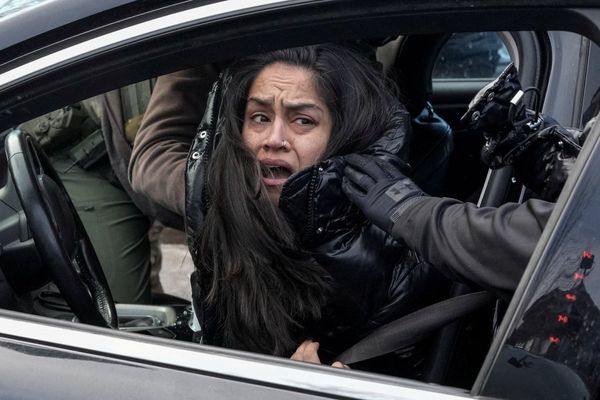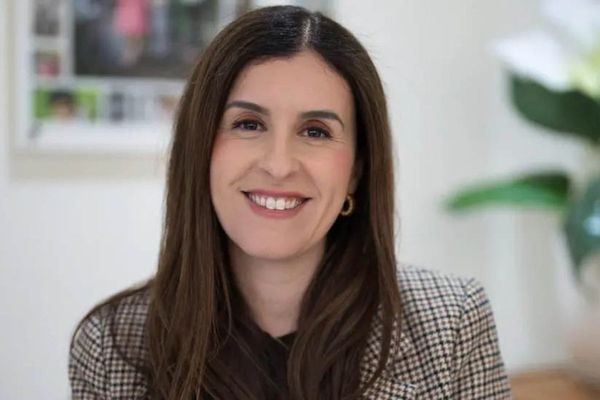
Just after midnight on New Year’s Day, a 29-year-old Uber driver named Jonathan Rinderknecht allegedly ignited what became the most destructive wildfire in Los Angeles history.
Nearly 10 months after the disaster, Rinderknecht’s arrest this week brought some closure to residents. Investigators say he was a troubled young man obsessed with fire, who tried to hide his role after setting a small blaze that reignited days later into a deadly inferno.
According to federal investigators, who spoke at a press conference on Wednesday, Rinderknecht, who lived near the Pacific Palisades neighborhood at the time, ended his driving shift appearing “agitated and angry”, parked near a trailhead leading to Topanga state park and walked uphill while listening to a French rap song whose video shows objects being burned.
Moments later, he allegedly set fire to dry vegetation with a lighter, starting what was first known as the Lachman fire. Firefighters thought it had been extinguished the same day, but the blaze smoldered underground for nearly a week before reigniting on 7 January amid extremely powerful winds, eventually transforming into the Palisades fire.
According to the court documents, Rinderknecht offered to help firefighters fight the Lachman fire when he returned to the scene, which authorities described as “highly unusual conduct”. The Lachman fire grew to eight to 10 acres before being suppressed by the LA fire department.
After calling 911 and seeing firefighters driving up Palisades Drive to respond to the fire, Rinderknecht turned around, followed the firefighters up to the fire and filmed them responding to it, according to the criminal complaint. “Arsonists sometimes like to watch firefighters respond to the fires that they have set,” the court document said.
The Palisades fire eventually burned more than 23,000 acres (9,300 hectares), killed 12 people, destroyed more than 6,800 structures and caused billions of dollars worth of damage.
Acting US attorney Bill Essayli described the incident as “a single person’s recklessness” leading to catastrophic loss.
Digital evidence, including GPS data obtained from the suspect’s phone and video footage, revealed that months before the fire, Rinderknecht used ChatGPT to generate images and prompts fixated on fire and destruction, including a dystopian scene of a city being burned down. Rinderknecht asked ChatGPT to show a burning forest and people running away from the fire. He also asked ChatGPT to depict a gigantic gate marked with a “big dollar sign”, according to the criminal complaint.
“On the other side of the gate and the entire wall is a conglomerate of the richest people,” reads the prompt. “They are chilling, watching the world burn down, and watching the people struggle. They are laughing, enjoying themselves, and dancing.”
Prosecutors also said Rinderknecht asked ChatGPT: “Are you at fault if a fire is lift because of your cigarettes”, misspelling the word “lit” with “lift”. (ChatGPT’s response was “Yes”, followed by an explanation, according to the complaint.)
On Wednesday, authorities showed the image ChatGPT generated at a press conference announcing the arrest.
According to prosecutors, Rinderknecht had also used ChatGPT to confide an obsession with fires. In November, he typed into the chatbot that he burned a Bible and wrote: “It felt amazing. I felt so liberated.” He wrote a similar message to a family member.
Authorities have also laid out how Rinderknecht attempted to cover his tracks after after allegedly igniting the fire. According to prosecutors, Rinderknecht called 911 to report the fire but lied about his location, and told the police that he was at the base of the trail when geolocation data showed he was only 30ft from the flames.
Federal prosecutors have charged Rinderknecht, who later relocated to Florida, with destruction of property by means of fire, a crime carrying a minimum sentence of five years and up to 20 years in prison.
OpenAI, which developed ChatGPT, did not immediately respond to a request for comment.
On Thursday, the assistant US attorney Rachel Lyons said during a hearing in federal court in Orlando that Rinderknecht was a flight risk because he had family in France and spoke French. Shackled and wearing a red jail uniform, Rinderknecht listened attentively as an agent from the Bureau of Alcohol, Tobacco, Firearms and Explosives (ATF) recounted the family’s concerns about his mental health.
His relatives in Florida expressed fear for their safety, telling investigators his mental state had deteriorated and that they were pursuing eviction proceedings. A federal magistrate ordered him to remain in custody pending a full hearing.
A preliminary hearing to review the facts of the case was scheduled for 17 October.
Rinderknecht was arrested on Tuesday but he was first interviewed by authorities on 24 January. Investigators said during the intervening months, they worked to rule out other potential causes for the first fire’s ignition, such as fireworks or lightning strikes. All the while they were combing through the suspect’s phone to track his whereabouts on the day it began.
Kenny Cooper, special agent in charge of the ATF’s Los Angeles field division, said his agency pursued more than 200 leads in the US and abroad while scouring the hillsides where the fire was ignited.
“Though homes and businesses cannot be rebuilt, this arrest, we hope, will bring a measure of justice to all those who were impacted,” said Essayli.
The investigation’s findings have brought some long-sought-after answers for Palisades residents. The area is still full of charred ruins following a cleanup that took months, and the neighborhood is only slowly beginning to rebuild. On Friday, the office of the California governor, Gavin Newsom, announced a package of bills to help the ongoing recovery and rebuilding of the communities in the Los Angeles area affected by the Eaton and Palisades fires.
“While it’s been nine months since these firestorms struck Los Angeles, the destruction and devastation left behind is still fresh for thousands of survivors and remains a constant reminder that we have more to do to support our fellow Californians,” Newsom said in a statement.
The Associated Press contributed reporting







